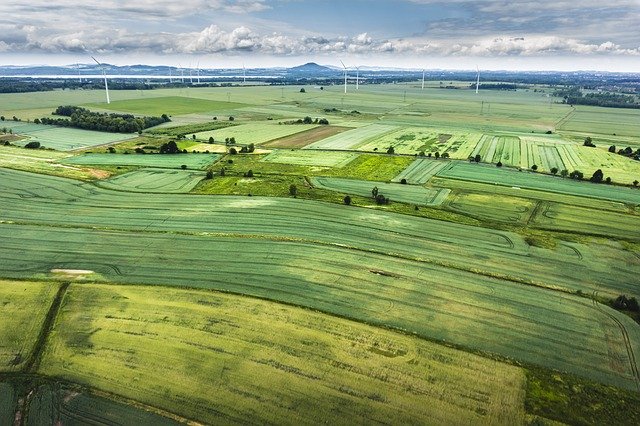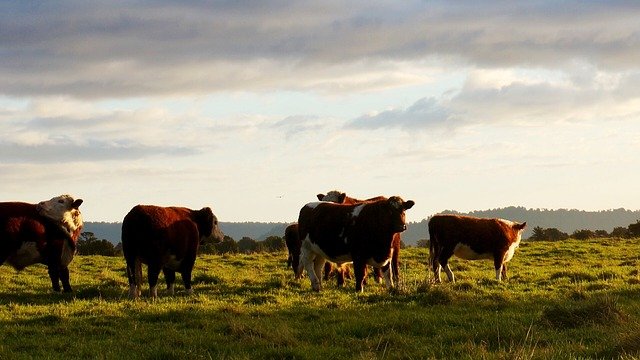Farming is a community affair. When the U.S. was being settled, two types of communities sprang up - the merchants and the farmers. Cities that had easy access to transportation, with rivers and oceans being the primary means of transportation at that time, became cities with a wide ranging mix of business entities. Where the soil and irrigation was good, farmers settled to grow the food that eventually found its way to those cities.

Smaller towns sprung up to service those farms and serve as waypoints on the journey the food took from farm to city table. Nothing has changed from that long ago time to today other than the cities and towns have gotten larger, the farms have gotten smaller and the transportation network has gotten much better. But there is still that separation if “country” and “city” that exists to this day. This divide between farm town and city life has created numerous problems through the decades and none of those issues are easily solved.
You are unlikely to find an investment broker in a Brooks Brothers suit sitting in a farm town diner next to an overall clad soy farmer with mud on his boots. The younger generation often has a goal of leaving the family farm as soon they can for the “bright lights of the city”. Some, like me, come back to the family farm after being exposed to new ideas and a new way of life that the city affords. But most leave and never come back.
Thus the farmer and rancher is isolated from the world at large, with a way of life and a set of problems that are not understood by the “city folk” and those things that make the headlines in the national media leaving farmers and ranchers scratching their head in bewilderment. This does not make them stupid, or backwards, or less of a person, they just have different priorities and until winter sets in not much time to explore what moves other parts of the world in any great detail.
They are not consumers of Snapchat, or YouTube or Hulu or Twitter. Not only do they not have time for such pursuits during planting, growing and harvesting seasons, the connectivity in rural areas is not very good. You won’t see laws passed in the Dakotas, Montana or Wyoming about texting and driving because it’s just not a problem. The odds are pretty good you won’t have cell service in much of that area so texting and driving is just not an issue when you can’t connect.

Connection speed for the internet is often dismally slow in vast areas of the rural landscape. A 2 MB connection is considering blazingly fast, and a good wind or a heavy rainstorm is pretty much guaranteed to take even that out of service. Because farming and ranching require a large amount of room, there just aren’t enough people in a given area to make it worth the while of telecos to improve and upgrade service.
Most farmers and ranchers still get their news delivered in a paper format - newspapers and magazines, and many get multiple newspapers on a daily basis that include The Wall Street Journal, Barrons, USA Today in addition to Farm Reports, and local newspapers. These are read at lunch break or after the days work is done, with news of commodities, futures markets and trade agreements being consumed on pretty much a daily basis.
But new tech advances that will impact the food supply are often overlooked. If you want to start an argument, step into a grain mill or sit down in a local diner and bring up the vegan movement or lab grown meat and be sure to mention the impact that will have on the “old ways of doing things”. But if you want a thoughtful discussion, bring up the lack of transparency in the food supply and how Government regulations meant to change that lack of transparency fall far short of the goal.
Farmers and ranchers don’t want to just grow food for the world, they want to grow good, safe food for everyone. They work incredibly long hard hours to make that happen yet lose control of their product the moment it’s on the truck and headed down the road. They have no control over that steer. Did it end up in a feed lot, and what was it fed or injected with to finish grow out faster? What chemicals are now in its body waiting for the unwary consumer to ingest? When they send their grain to the mill to be ground and sold, where does it go? What is added to it as it becomes a loaf of bread that needs a “long shelf life”? The people who grew and nurtured that food source have no more idea than the end consumer.
There is an answer, of course - supply side management on the blockchain. But if you mention blockchain the first knee jerk reaction you’ll get is “Oh, that bunch of scammers”. The blockchain has become inexorably associated with cryptocurrency and ICO’s. While it’s common to talk about “mainstream adoption of the decentralized web” as long as the decentralized blockchain technology is associated in the minds of many with tokens that raise tens of millions of dollars only to lose their value weeks or months later, the advantages the blockchain can bring to the food chain will be lost in the media noise and the hype that surrounds each ICO announcement.

Farmers and ranchers are frustrated. They work to produce a good product, a safe product, only to see it become altered as it makes its way through the chain. They read about the reactions to the unsafe food supply - the vegan movement, the introduction of indoor, controlled growing facilities for plant based food, and the efforts of laboratories to create “meat” products and believe those efforts will fail.
This great disconnect between the consumer and the farmer can be solved - easily. Adopt the blockchain tech that will bring transparency to the table along with the food. Farmers are not backwoods idiots, they are intelligent people, who take pride in their product and who can adapt quickly to things that will help them bring that product to the consumer in good shape. They know that what they put on that truck is not what ends up in the kitchen - after all they buy groceries, too! Anything that will help them get the same product that came out of their fields and sheds onto those store shelves will be embraced far more quickly than news pundits and city dwellers realize.
For blockchain tech to reach mainstream adoption, more focus needs to be placed on the work it can do, and less on the potential riches that might be made from the sale of tokens and this hours crypto of choice ticker price.
https://steemit.com/originalworks/@yasayanoluler/native-meet-blockchain-project-originalworks-sponsored-writing-contest
I totally agree with you.
Congratulations @ascorphat! You have completed the following achievement on the Steem blockchain and have been rewarded with new badge(s) :
Click here to view your Board
If you no longer want to receive notifications, reply to this comment with the word
STOPTo support your work, I also upvoted your post!
Nice article, I think we can definately use blockchain for many things, but not for everything. Upvoted and resteemed!